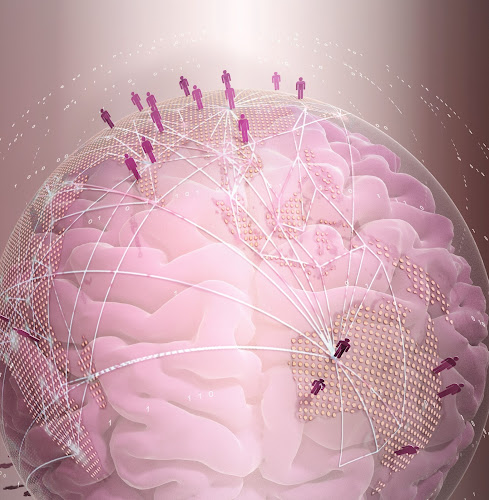 |
| Birds need significantly less energy for their brains than mammals. Credit: RUB, Marquard |
Bird brain cells only need about a third of the energy mammals have to use to supply their brains. "This partly explains how birds manage to be so smart, even though their brains are so much smaller than that of mammals," says Prof. Dr. Onur Güntürkun, head of the biopsychology unit at the Ruhr University Bochum. Together with colleagues from Cologne, Jülich and Düsseldorf, his research team examined the energy consumption of the brains of pigeons using imaging methods. The researchers report in the Current Biology journal dated 8. September 2022.
Why it can take in a crow with a chimpanzee
Our brain only makes up about two percent of our body weight, but consumes about 20 to 25 percent of body energy. "The brain is by far the most energetically expensive organ in our body, and we could only afford it in the course of evolution by successfully learning to supply a lot of energy," explains Güntürkun. The brains of birds are much smaller in comparison. Nevertheless, birds are just as smart as many mammals: crows and parrots, for example, whose brains only weigh about 10 to 20 grams, can cognitively absorb a chimpanzee whose brain weighs 400 grams.
How can that be? A study in 2016 brought light into the dark: It showed that birds per volume of brain mass have two to three times as many nerve cells as mammals. So, your brains are packed much denser. In addition, their cranial nerve cells are smaller. “But the question still arises: How can such a small animal afford so many nerve cells??“Says Onur Güntürkun.
















.jpg)